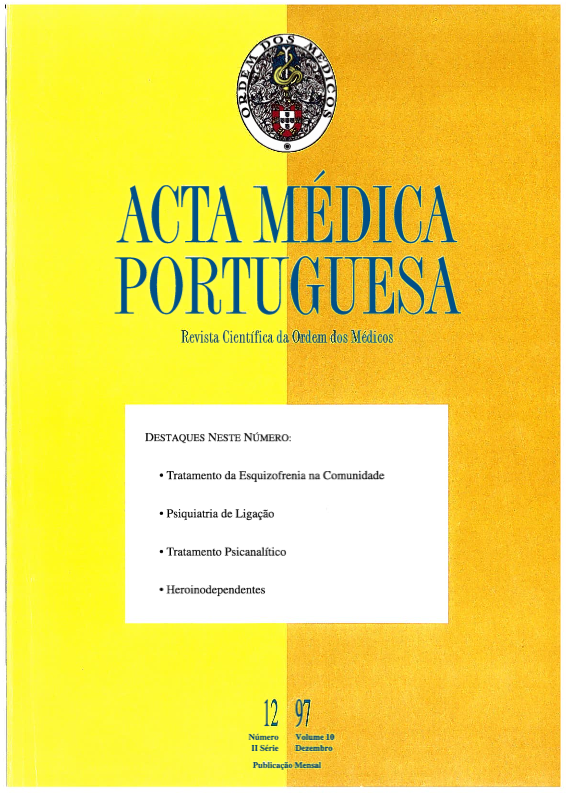Psychological disorders. A study of social support.
DOI:
https://doi.org/10.20344/amp.2523Abstract
Many studies have shown that social support is related with psychological disorders and both are high consumers of health service resources. A study was carried out by the author to identify psychological disorder relationships with social support and how they change in presence or absence of life events. An inquiry by questionnaire was conducted among a stratified proportional by sex and random age sample of correctly registered patients in the Family Medicine Out-Patients Clinic of Ajuda Health Centre, Lisbon. A prevalence of 38.2% was obtained with the mental health scale and is clearly greater than other applications on identical populations. The Psychological situation depends inversely on social support adequacy, crisis resources, contacts network and economic situation; it depends on quantity and availability, but not on quality and accessibility; it is independent of the occurrence of life events. Social support induces changes on mental state (direct effect), but one life events it only induces changes in mental state related with social support (indirect effect). Social support seems to induce a buffering effect on life events upon psychological changes, but this work cannot support this evidence.Downloads
Downloads
How to Cite
Issue
Section
License
All the articles published in the AMP are open access and comply with the requirements of funding agencies or academic institutions. The AMP is governed by the terms of the Creative Commons ‘Attribution – Non-Commercial Use - (CC-BY-NC)’ license, regarding the use by third parties.
It is the author’s responsibility to obtain approval for the reproduction of figures, tables, etc. from other publications.
Upon acceptance of an article for publication, the authors will be asked to complete the ICMJE “Copyright Liability and Copyright Sharing Statement “(http://www.actamedicaportuguesa.com/info/AMP-NormasPublicacao.pdf) and the “Declaration of Potential Conflicts of Interest” (http:// www.icmje.org/conflicts-of-interest). An e-mail will be sent to the corresponding author to acknowledge receipt of the manuscript.
After publication, the authors are authorised to make their articles available in repositories of their institutions of origin, as long as they always mention where they were published and according to the Creative Commons license.









